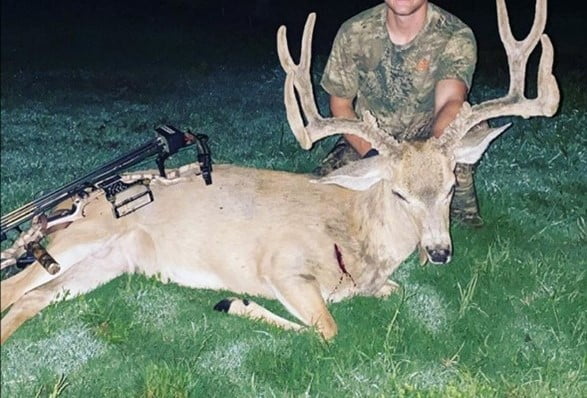
 |
SALEM, Ore.—A new program will provide big game preference points in lieu of a cash reward to people who turn in poachers.
The program builds on the long standing Turn in Poachers Program (TIP), a successful collaboration between the Oregon Hunters Association and Oregon State Police which until now only provided cash rewards for information about poaching.
But new this year, people who provide information that Oregon State Police determines leads to an arrest or citation for the unlawful take/possession or waste of big game (deer, elk, moose, mountain goat, bighorn sheep, antelope, bear, cougar, or wolf) are eligible for preference points or the cash reward.
For cases involving bighorn sheep, mountain goat, moose, and wolves, the person who turns in a poacher will be awarded five preference points. For cases involving elk, deer, pronghorn, cougar and bear, the person will be awarded four preference points. All preference points must go to one hunt series (elk, buck deer, antlerless deer, antelope or spring bear).
Hunters can only get one point in each hunt series each year. Some of Oregon’s most coveted hunts require 15+ points to draw, but most hunts require far less. Five preference points would allow a hunter to draw 76 percent of buck deer hunts, 69 percent of doe deer hunts, 83 percent of elk hunts and 24 percent of pronghorn hunts.
The new program is due to the passage of HB 3158 by the 2017 Oregon Legislature, which directed ODFW to offer big game preference points in lieu of a cash reward for people providing information leading to citations or arrest of poachers. The Fish and Wildlife Commission adopted rules for the program last month at their meeting in Bandon, and the rules are retroactive until Jan. 1, 2018.
“Poaching is a serious problem for Oregon’s wildlife,” says Travis Schultz, ODFW Access and Habitat Coordinator. “It can have significant long term impacts on our wildlife populations.”
For example, a six-year study involving radio-collared mule deer in south central Oregon found that illegal take actually exceeded legal take of mule deer. Even more troubling, poachers often killed does, not bucks, even though regulations prohibit taking female deer in order to protect breeding populations. Most poaching occurred during legal hunting seasons.
“Poaching is a heinous crime that affects all Oregonians and people who break the law ;need to be held accountable,” said Lieutenant Craig Heuberger, Oregon State Police Fish and Wildlife Division. “Our Fish and Wildlife Troopers make a lot of great cases that start from people reporting when they see something suspicious or wrong.”
“We are hoping this encourages more people to step forward and report poaching,” Heuberger added.
Report wildlife violations via email to TIP@state.or.us or by calling *OSP or 1-800-452-7888, or your local OSP or ODFW office.
